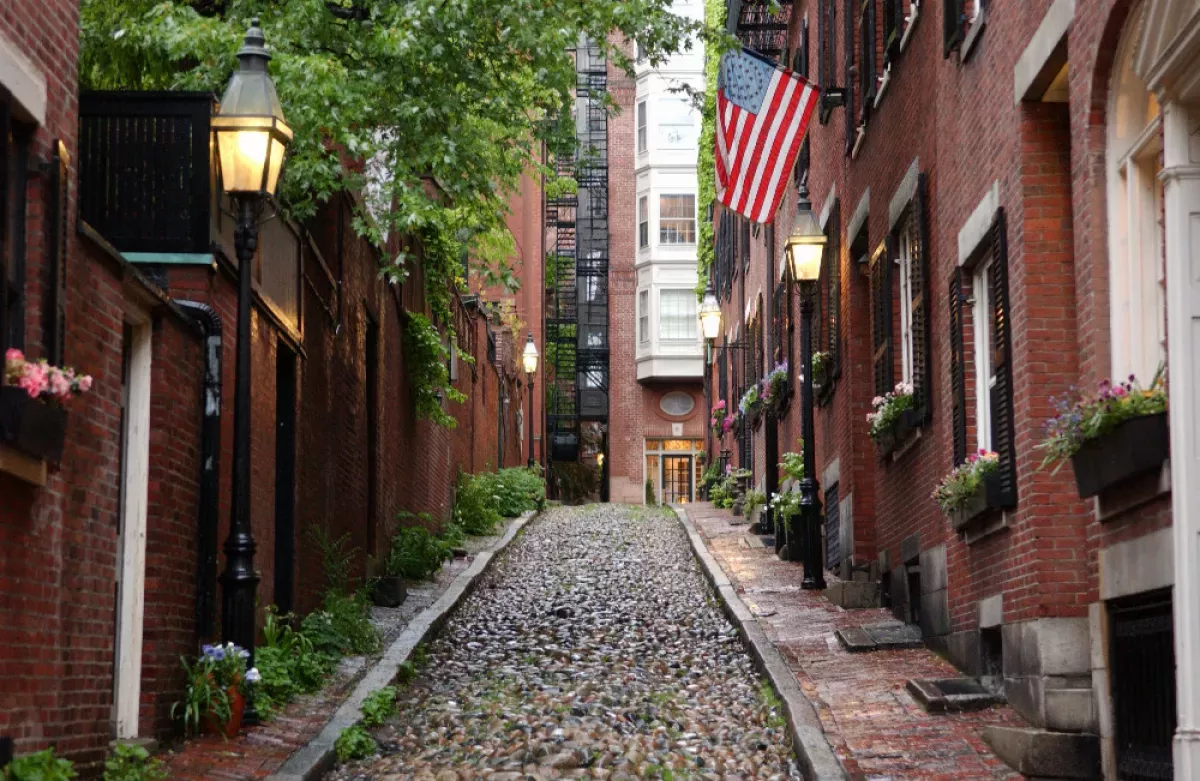Boston, the capital and most populous city of Massachusetts, is the cultural and financial hub of New England. Covering 48.4 square miles, its population was 675,647 in 2020, ranking it as the third-largest city in the Northeastern United States, after New York City and Philadelphia. The Greater Boston metropolitan area, home to 4.9 million residents in 2023, is the largest metropolitan area in New England and the eleventh-largest in the U.S.
1901: Red Sox Founding Member of American League
In 1901, the Boston Red Sox became a founding member of the American League of Major League Baseball.
1903: First Modern World Series Game
Boston was the site of the first game of the first modern World Series in 1903, played between the Boston Americans and the Pittsburgh Pirates.
1903: Team Name Speculation
Persistent reports that the team was known in 1903 as the "Boston Pilgrims" appear to be unfounded.
1906: Construction of the Longfellow Bridge in 1906
The Longfellow Bridge was built in 1906.
July 4, 1911: Record high temperature on July 4, 1911
The official temperature record reached a high of 104 °F (40 °C) on July 4, 1911.
1911: Team Name Change
The team played under the name Beaneaters until 1911.
1912: Fenway Park Built
Built in 1912, Fenway Park becomes the home of the Boston Red Sox and the oldest sports arena or stadium in active use.
1912: Opening of Fenway Park in 1912
In 1912, Fenway Park, the home of the Boston Red Sox, opened.
1912: Annexation of Hyde Park in 1912
In 1912, the city of Boston annexed Hyde Park.
1912: Team Name Change
The team played under the name Braves from 1912 until they moved to Milwaukee after the 1952 season.
1916: MIT Moves to Cambridge
The Massachusetts Institute of Technology (MIT), originally in Boston, moved across the river to Cambridge in 1916.
December 30, 1917: Record cold daily maximum on December 30, 1917
The record cold daily maximum temperature was 2 °F (−17 °C) on December 30, 1917.
September 8, 1923: Opening of Logan International Airport on September 8, 1923
Logan International Airport opened on September 8, 1923.
1928: Opening of the Boston Garden in 1928
In 1928, the Boston Garden opened.
February 9, 1934: Record low temperature on February 9, 1934
The official temperature record reached a low of −18 °F (−28 °C) on February 9, 1934.
November 15, 1934: Kennedy Sr. speaks to the Boston Chamber of Commerce on November 15, 1934
On November 15, 1934, Kennedy Sr. addressed the Boston Chamber of Commerce, warning against fraudulent securities practices.
1952: Braves Move to Milwaukee
The team, known as the Braves, moved to Milwaukee after the 1952 season.
1953: Construction of Columbia Point Public Housing Complex in 1953
The Columbia Point public housing complex, which the Columbia Point Health Center mostly served, was built in 1953.
1957: Establishment of the Boston Redevelopment Authority in 1957
In 1957, the Boston Redevelopment Authority (BRA) was established to direct urban renewal projects.
1957: Lowest Temperature Reading Since 1957 on February 4, 2023
On February 4, 2023, the temperature in Boston dipped to −10 °F (−23 °C), the lowest temperature reading since 1957.
1958: BRA Initiates West End Project in 1958
In 1958, the Boston Redevelopment Authority (BRA) initiated a project to improve the historic West End neighborhood, leading to extensive demolition and displacement.
1960: Boston Patriots Founded
In 1960, the New England Patriots were founded as the Boston Patriots. They were later renamed after relocating to suburban Foxborough.
1965: Opening of the Columbia Point Health Center in 1965
In 1965, the Columbia Point Health Center, the first Community Health Center in the United States, opened in the Dorchester neighborhood.
1971: Patriots Relocation
In 1971, the Boston Patriots relocated to suburban Foxborough.
1974: Conflict over desegregation busing begins in 1974
Conflict over desegregation busing began in 1974, resulting in unrest and violence around public schools throughout the mid-1970s.
August 2, 1975: Record warm daily minimum on August 2, 1975
The record warm daily minimum temperature was 83 °F (28 °C) on August 2, 1975.
1984: Redevelopment of Columbia Point Begins in 1984
From 1984 to 1990, the Columbia Point complex was redeveloped into a mixed-income residential development called Harbor Point Apartments.
1990: High Murder Rate
In 1990, Boston experienced 152 murders, resulting in a murder rate of 26.5 per 100,000 people.
1990: Rededication of the Geiger-Gibson Community Health Center in 1990
In 1990, the Columbia Point Health Center was rededicated as the Geiger-Gibson Community Health Center.
1991: Start of the Central Artery/Tunnel Project in 1991
In 1991, the Central Artery/Tunnel Project, known as the "Big Dig", began.
1991: The Improper Bostonian Published
The Improper Bostonian, a glossy lifestyle magazine, was first published in 1991.
1993: Acquisition of The Boston Globe in 1993
In 1993, The Boston Globe was acquired by The New York Times.
1999: Murder Rate Plummets
In 1999, murders in Boston dropped to 31, resulting in a murder rate of 5.26 per 100,000 people.
2000: Boston Becomes Majority Minority
In 2000, non-Hispanic Whites were 49.5% of Boston's population, marking the first time the city became majority minority.
2004: Acquisition of FleetBoston Financial in 2004
In 2004, FleetBoston Financial was acquired by Bank of America.
2004: Boston Red Sox Win World Series & New England Patriots Win Super Bowl
In 2004, the Boston Red Sox won a World Series and the New England Patriots won a Super Bowl.
2006: Estimated White Majority
In 2006, the U.S. Census Bureau estimated non-Hispanic Whites formed a slight majority again in Boston.
2007: Commissioning of First Climate Action Plan in 2007
Boston commissioned its first climate action plan in 2007 to address carbon reduction in buildings, transportation, and energy use.
2007: Completion of the Central Artery/Tunnel Project in 2007
In 2007, the Central Artery/Tunnel Project, known as the Big Dig, was completed after many delays and cost overruns.
2008: American Community Survey
Data is from the American Community Survey's five-year estimates 2008–2012.
2009: Christian Science Monitor Ends Daily Print Publication
In 2009, The Christian Science Monitor, headquartered in Boston, stopped publishing daily print editions and switched to continuous online and weekly magazine format publications.
2010: Rebound of Non-White Population
As of 2010, the non-White population in Boston rebounded, possibly due to the housing crash and efforts to increase affordable housing.
2010: Religious Denominations in Greater Boston
In 2010, the Catholic Church had the highest number of adherents in the Greater Boston area, followed by the Episcopal Church and the United Church of Christ.
2010: Boston population increase from 2010 to 2020
In the 2020 census, Boston had a 12% population increase over 2010.
July 2011: Bluebikes Launched
In late July 2011, the bikeshare program Bluebikes, originally called Hubway, was launched in Boston.
2011: Age Demographics in 2011
In 2011, 21.9% of Boston's population was aged 19 and under, 14.3% was from 20 to 24, 33.2% from 25 to 44, 20.4% from 45 to 64, and 10.1% was 65 years of age or older.
2011: Demographic Composition
In 2011, African-Americans comprised 22% of Boston's population, with Irish descent being the second-largest ethnic group at 15.8%.
2011: Tourism Economy
In 2011, Boston's tourism industry saw 21.2 million visitors spending $8.3 billion.
2011: Update of Climate Action Plan in 2011
In 2011, an update to the climate action plan was released, continuing efforts to reduce carbon emissions.
2011: Median Household Income and Poverty Levels
In 2011, the median household income in Boston was $51,739. Significant disparities were observed in income and poverty levels among different demographics, including a racial wealth gap.
2011: Winter Snowfall in 2011-12
The winter of 2011–12 saw only 9.3 in (23.6 cm) of accumulating snow in Boston.
2012: American Community Survey
Data from the 2012-2016 American Community Survey 5-Year Estimates were used.
2012: Elizabeth Warren Elected to Senate
Democrat Elizabeth Warren was first elected to the United States Senate in 2012.
April 15, 2013: Boston Marathon Bombing on April 15, 2013
On April 15, 2013, two bombs detonated near the finish line of the Boston Marathon, resulting in fatalities and injuries.
2013: Ed Markey Elected to Senate
Democrat Ed Markey was elected to the United States Senate in 2013 to succeed John Kerry.
2013: NIH Grants for Research Institutions
Hospitals, universities, and research institutions in Greater Boston received more than $1.77 billion in National Institutes of Health grants in 2013.
2013: Boston's Philanthropy in 2013
In 2013, Boston households provided the highest average rate of philanthropy in the nation.
2013: Introduction of Renew Boston Whole Building Incentive in 2013
In 2013, Mayor Thomas Menino introduced the Renew Boston Whole Building Incentive to reduce the cost of living in energy-efficient buildings.
2013: Resale of The Boston Globe in 2013
In 2013, The Boston Globe was resold to Boston businessman John W. Henry.
2013: Chinese American Population
Over 27,000 Chinese Americans made their home in Boston city proper in 2013.
2014: Update of Climate Action Plan in 2014
In 2014, an update to the climate action plan was released, continuing efforts to reduce carbon emissions.
2014: Religious Affiliation
In a 2014 study by the Pew Research Center, 57% of Boston's population identified as Christians, with 33% claiming no religious affiliation.
2014: International Tourism
Over 1.4 million international tourists visited Boston in 2014, with visitors from China and the United Kingdom leading.
2015: Jewish Population in Boston Metro Area
In 2015, the Boston metro area had a Jewish population of approximately 248,000.
2016: American Community Survey
Data from the 2012-2016 American Community Survey 5-Year Estimates were used.
2016: Household Car Ownership in Boston
In 2016, 33.8 percent of Boston households lacked a car, compared with the national average of 8.7 percent. The city averaged 0.94 cars per household in 2016, compared to a national average of 1.8.
2016: Boston's Bid for the 2024 Summer Olympics in 2016
In 2016, Boston briefly had a bid as the U.S. applicant for the 2024 Summer Olympics, but it was eventually dropped due to public opposition.
2016: General Electric Announces Move to Boston in 2016
In 2016, General Electric announced it would be moving its corporate headquarters from Connecticut to the Seaport District in Boston.
2017: Boston Uprising Established
In 2017, the Overwatch League's Boston Uprising was established as an Esports team. They were the first team to complete a perfect stage with 0 losses.
2018: Growth of Latin American Populations in Greater Boston
According to 2018 estimates, Greater Boston saw significant growth in its Dominican, Puerto Rican, Salvadoran, Guatemalan, Mexican, and Colombian populations.
2018: Boston Red Sox Win World Series & New England Patriots Win Super Bowl
In 2018, the Boston Red Sox won a World Series and the New England Patriots won a Super Bowl.
2018: Financial Center Ranking
In the 2018 Global Financial Centres Index, Boston was ranked as the 13th-most competitive financial services center in the world and the second-most competitive in the United States.
April 2019: The Improper Bostonian Ended
The Improper Bostonian, a glossy lifestyle magazine, ended publication in April 2019.
July 21, 2019: Record warm daily minimum on July 21, 2019
The record warm daily minimum temperature was 83 °F (28 °C) on July 21, 2019.
September 2019: Launch of Boston Saves Program
In September 2019, Boston launched "Boston Saves", a program providing every kindergarten student with a savings account containing $50 for college or career training.
2019: Climate Action Plan Anticipates Sea-Level Rise in 2019
A 2019 climate action plan anticipates 2 ft (1 m) to more than 7 ft (2 m) of sea-level rise in Boston by the end of the 21st century.
2019: Update of Climate Action Plan in 2019
In 2019, an update to the climate action plan was released, continuing efforts to reduce carbon emissions.
2020: Boston's Population in 2020
In 2020, the census recorded Boston's population as 675,647, making it the third-most populous city in the Northeastern United States.
March 2021: Kim Janey Becomes Acting Mayor
In March 2021, Kim Janey became the Acting Mayor of Boston following Marty Walsh's confirmation as Secretary of Labor.
2021: Boston Police Department Budget
In the fiscal 2021 budget, Boston allocated $414 million to the Boston Police Department.
2022: Crime Statistics
According to the Uniform Crime Reporting (UCR) program, in 2022, Boston reported 3,955 violent crimes and 11,514 property crimes.
February 4, 2023: Lowest Temperature Reading Since 1957 on February 4, 2023
On February 4, 2023, the temperature in Boston dipped to −10 °F (−23 °C), the lowest temperature reading since 1957.
2023: Boston as a Biotechnology Leader in 2023
As of 2023, Boston emerged as a global leader in higher education, research, and biotechnology, establishing itself as the world's largest biotechnology hub.
2023: Greater Boston Population in 2023
In 2023, the Greater Boston metropolitan area had a population of 4.9 million, making it the largest metropolitan area in New England. Boston emerged as the largest biotechnology hub in the world.
2024: Walk Score Ranking
As of 2024, Walk Score ranks Boston as the third most walkable U.S. city, with a Walk Score of 83, a Transit Score of 72, and a Bike Score of 69.
2024: Walter Cup Finals
During the inaugural 2024 PWHL playoffs, the Boston Fleet (then known as PWHL Boston) reached the Walter Cup finals, losing to the Minnesota Frost (PWHL Minnesota).
2024: Boston's Failed 2024 Olympic Bid
In 2016, Boston briefly shouldered a bid as the U.S. applicant for the 2024 Summer Olympics, but it was eventually dropped due to public opposition.
June 24, 2025: Last 100 °F (38 °C) reading occurred on June 24, 2025
The last 100 °F (38 °C) reading occurred on June 24, 2025.
2026: Boston to Host 2026 FIFA World Cup Matches
Boston is one of eleven U.S. cities which will host matches during the 2026 FIFA World Cup, with games taking place at Gillette Stadium.
2028: Los Angeles secures the right to host the 2028 Summer Olympics.
In 2016, after Boston's bid was dropped, the USOC then selected Los Angeles to be the American candidate with Los Angeles ultimately securing the right to host the 2028 Summer Olympics.
Mentioned in this timeline
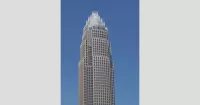
Bank of America is a multinational investment bank and financial...
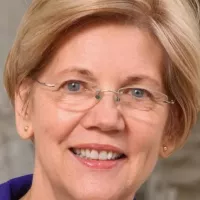
Elizabeth Warren is a prominent American politician and the senior...
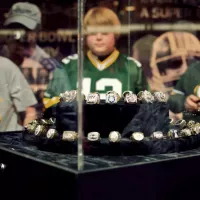
The Super Bowl is the annual championship game of the...

John Kerry is an American politician and diplomat notable for...
China officially the People's Republic of China is an East...
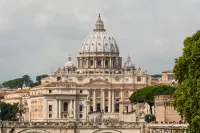
The Catholic Church the largest Christian church globally with over...
Trending

37 minutes ago Mpetshi Perricard tries Dehaes after Planque split, Dubai & Doha comments.

37 minutes ago Otto Virtanen Gears Up for Dubai 2026: Match Analysis and Fan Commentary

37 minutes ago Choinski Qualifies for Doha, Faces Mensik in ATP Qatar Open 2026
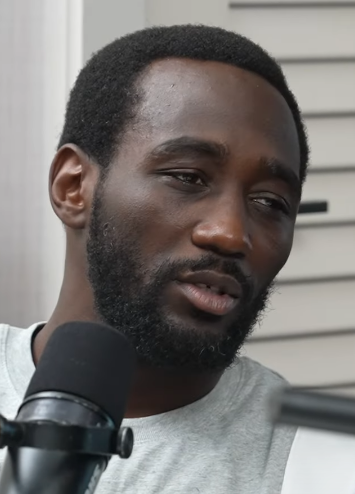
3 hours ago Terence Crawford's son triumphs, securing Nebraska state wrestling title: A proud moment.

2 hours ago Devin Haney superfight obstacles, Ryan Garcia's message, and rematch avoidance claims surface.

3 hours ago Gervonta Davis targeted for world title fight amidst controversy and hit list mentions.
Popular

Jesse Jackson is an American civil rights activist politician and...

Barack Obama the th U S President - was the...

Bernie Sanders is a prominent American politician currently serving as...

Ken Paxton is an American politician and lawyer serving as...

Michael Joseph Jackson the King of Pop was a highly...
WWE Raw a professional wrestling television program by WWE airs...
